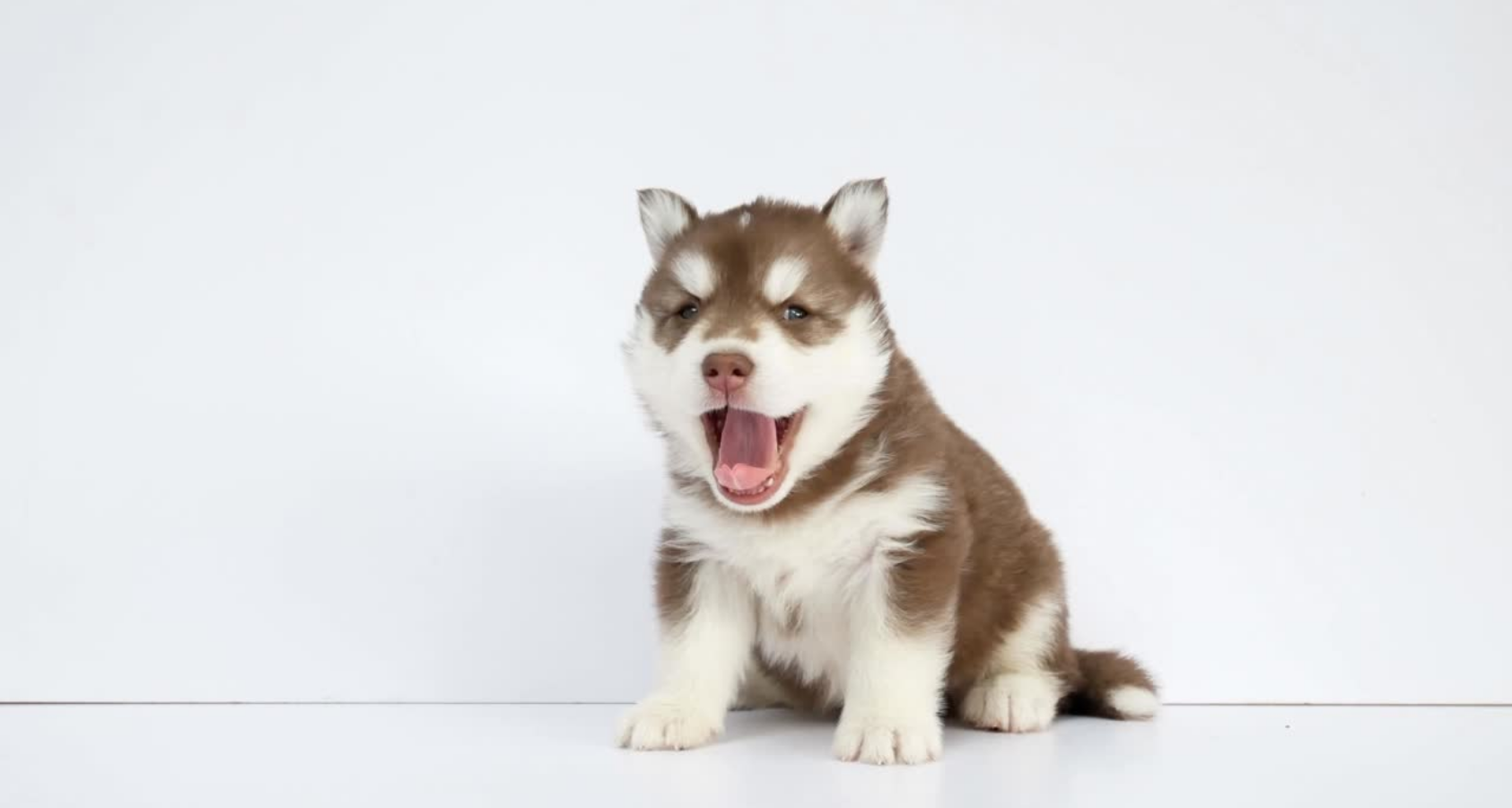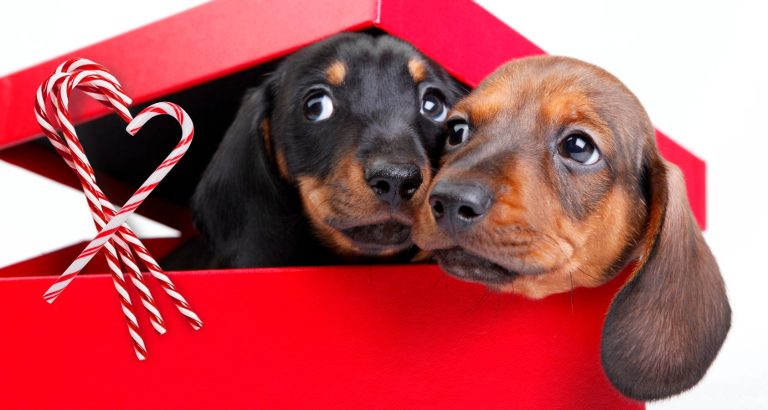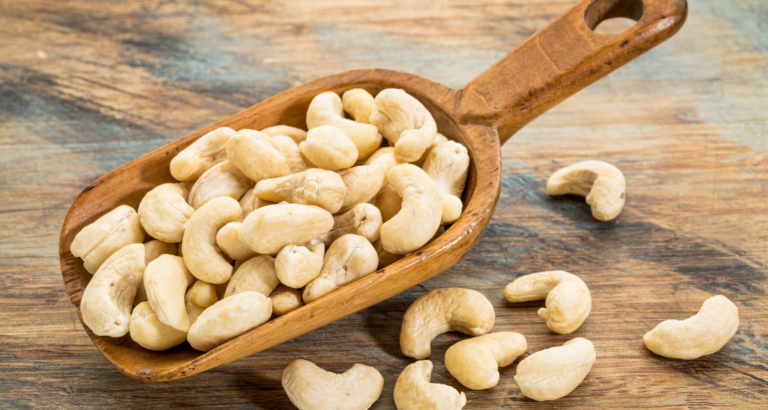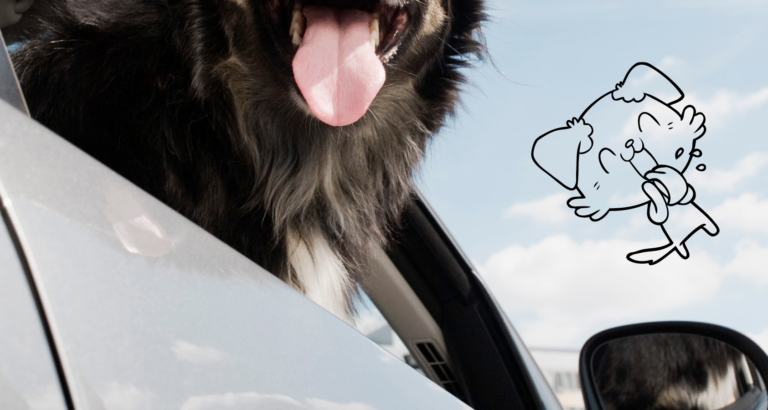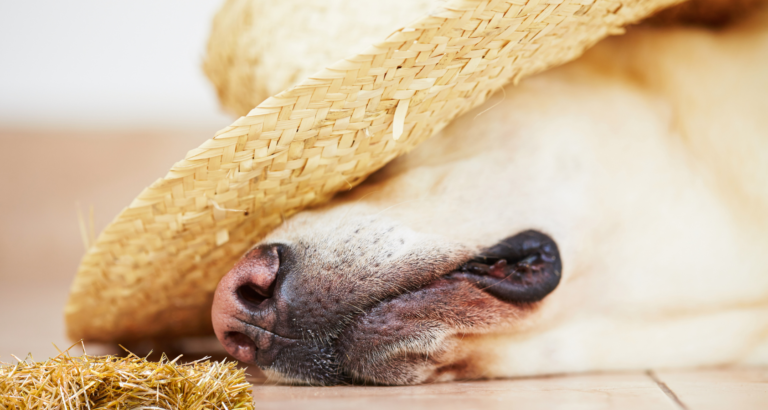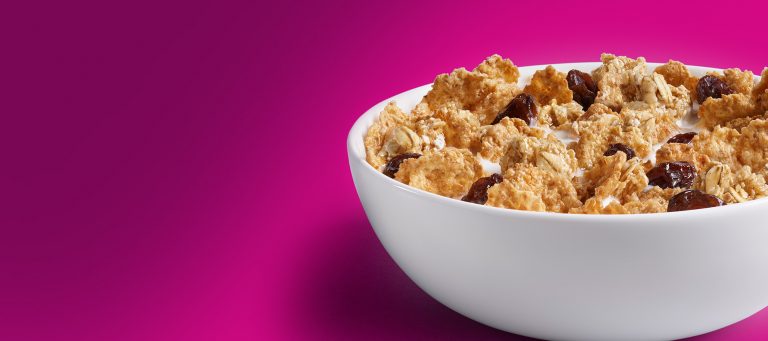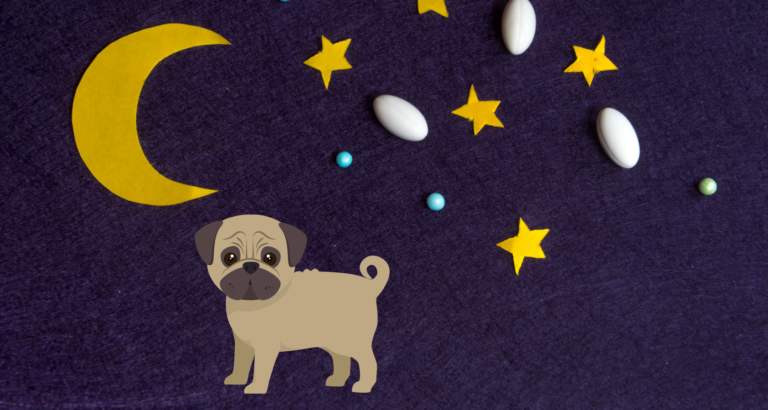Baby Husky Puppies – What You Need To Know
Last updated on October 6th, 2023 at 06:16 am
Reading Time: 12 minutesThis post may contain affiliate links. If you click and buy we may make a commission, at no additional charge to you.
Husky Puppies: Everything You Need To Know
Dog owners with the ultimate urge to have baby husky puppies can’t wait to explore their adorable features, looks, behavior, and more! Huskies are one the most loveable and top dog breeds because of their notable characters and attributes. So let’s jump in into getting to know these adorable dogs and their puppies.
Quick Answer
Husky puppies are a well-known medium-sized dog breed with double coats, astonishing eyes, and focused expressions. Baby huskies also keep everyone engaged as they enjoy human company but need to be trained from puppyhood to polish manners and conducts with other pets and humans.
So, the urge to get learn more about baby huskies is worth it. If you’re looking to get a baby Husky this article is perfect for you. If still doubtful, this guide will be enough to convince you, you’ll find everything about baby huskies, from their types, physical attributes, grooming, training to even cost.
So, let’s dive in!
Types of Husky Puppies
Huskies are beautiful, energetic, loving companions and a man’s best friend. These dogs are traced all the way back to their wolf ancestors more than 35,000 years ago. These dogs are truly adorable and one of a kind. When it come sto Huskies there are many different types ranging from Siberian to Alaskan. Even though these dogs are slightly different from on another, and different breeds. They still share the same ancestry and features which make them similar.
There are many types husky puppies, but the most common are:
- Siberian Husky
- Malamute
- Labrador Husky
- Alaskan Husky
- Samoyed Husky
- Chinook
- American Klee Klai
- White Husky
Fun Facts about Huskies
Before we dive into some of their traits. We’ll share some fun facts that you might have not known about them.
- Humans are talkative, but you’ll be amazed to know that huskies are also very talkative. They have tricks to convey their feelings through grumbling, groaning, and jabbering. Their smiley faces also let you know their happiness.
- They have exceptional metabolism and they can sprint for hours upon hours without food.
- Huskies are movie stars, and Siberian huskies inspired several animated movies. These movies and their acceptance among people of every age group are proof of their wider acceptance.
- Huskies were great warriors, and they served during World War II to transport provision, medicine, and mail. This is because they are hardworking dogs and don’t get tired after long chores. Plus, they remained in headlines worldwide in the winter of 1925 when they delivered lifesaving medicines during the diphtheria outbreak. Siberian husky named Balto led the team, and they traveled over 600 miles in just five and a half days. Afterward, Balto was honored with a bronze statue that you can still find in New York’s Central Park.
Husky Puppy Traits
| Traits | Baby Husky | Traits | Baby Husky |
| Coat – length | Double coat – Medium | Activity | High |
| Colors | White, black, brown | Social Needs | Moderate |
| Weight | 35 to 60 pounds | Feeding level | Moderate |
| Height | 23inches | Intelligence | High |
| Dog breed type | Working | Grooming level | Moderate |
| Temperament | Friendly | Life span | 12 – 15 years |
Husky Puppy Physical Attributes
Husky puppies originated in cold climates. Due to this, they have a thick double coat that can cope with extreme cold weather conditions. Their thick double coat consists of a very dense short undercoat for maintaining their body heat and an outer longer coat that is more like a shield to protect from water.
- The facial feature of husky puppy never lets anyone miss the guess that the dog is Husky. Almond-shaped blue, brown, or amber eyes make them prominent. Huskies are part-eyed – half brown and half blue. You can also find bi-eyes husky puppies with one brown eye and the other blue.
- Their double coat color ranges from white to black, brown, and every shade from these color pallets.
- Their face is white with brown, black, grey markings, and an elongated snout gives them distinct expression. The colors of face markings form a forehead cap to create an illusion of raised eyebrows.
- Huskies are medium-sized breeds and can be 23inches high, weighing between 35 to 60 pounds. An average male gets up to 45 to 60 pounds while females are smaller and 35 to 50 pounds.
Husky Personality
Husky puppies are adorable due to their not-so-aggressive personality traits. They are intelligent, fun lovers and great hosts to welcome anyone at the door. Huskies are good with kids and enjoy human company but need a little training right from puppyhood. They often get stubborn, however it’s not something to worry about. Your gentle attitude helps keep them calm.
– You will be amazed to know that Husky puppies are good with other dogs, especially ones they are raised with them.
Huskies like to socialize, have friends and do tasks that keep them busy.
If you are fed up with barking dogs, huskies could be your best buddies as they don’t bark much. They’re talkative – moan or whine to get your attention and smile often.
Husky puppies can also be diggers, particularly in warm weather, as they dig to make a cool place to lie down.
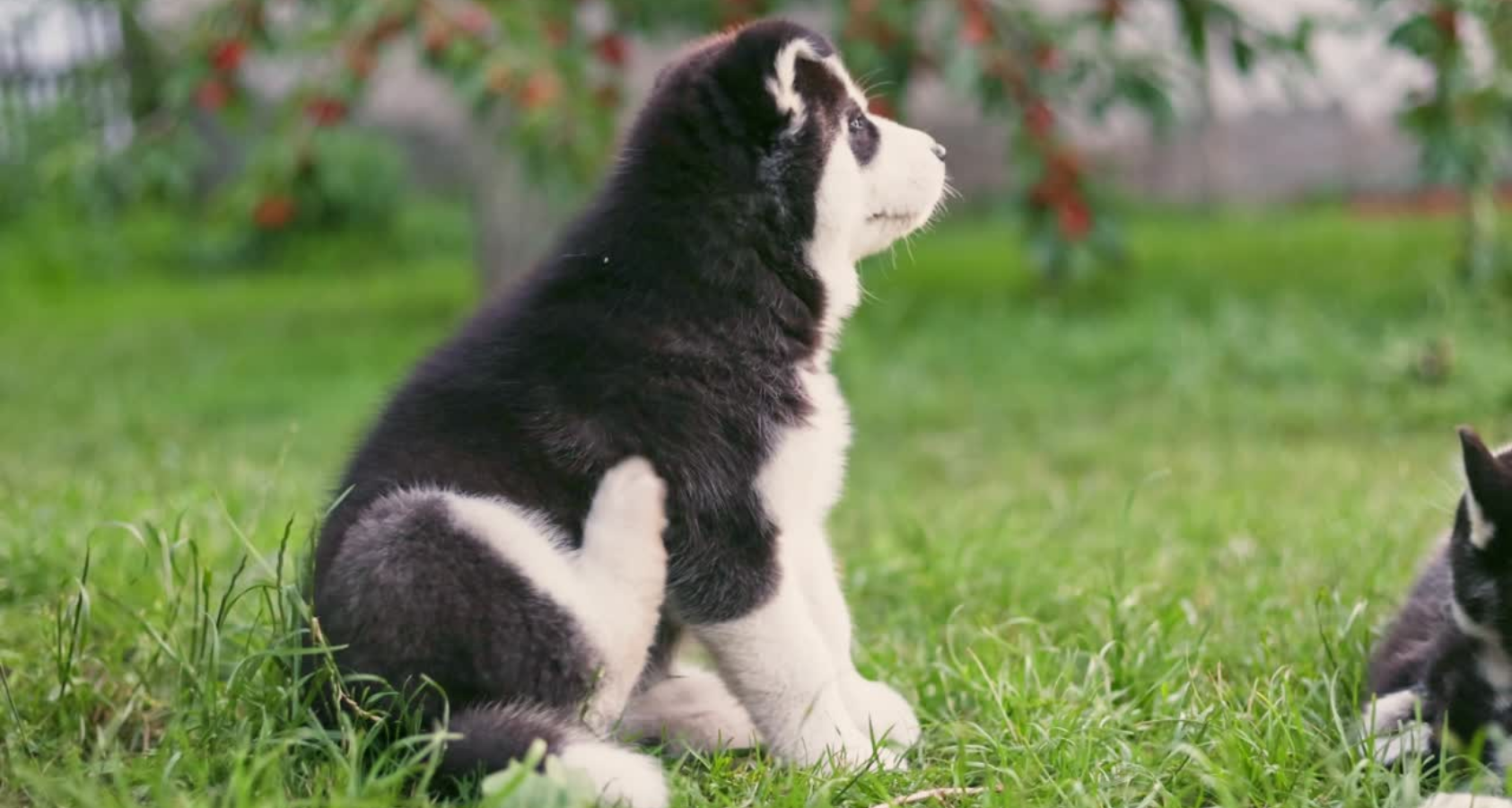
Activity
Huskies are quite active, and have a great urge to run, run fast. Running, chasing and exercising are their favorite to-do things that keep these adorable puppies active and interactive all the time. They also enjoy activities together with their owners, such as agility, rally, and obedience. Additionally, these dogs do not get tired often when doing exercise. Daily walks, parks, or doggie playgrounds can provide them with enough needed exercise.
A really important thing about a Husky puppies activity and exercising is that they are susceptible to overheating due to a dense coat. So, if you are native to warmer regions or simply it summertime, take your puppy to exercise early in the morning or go for water activities like swimming.
Care and Grooming
If you are looking for a puppy with fewer grooming requirements, a husky puppy could be your best buddy. Huskies need less grooming than many other double-coated dogs, and your little attention will be sufficient to keep them good-looking.
Still, there are some important things you need to do for husky puppy grooming. These include:
Bathing and Brushing
- Huskies are self-cleaning and don’t make doggie smell to repel people. So, there will be no hustle of frequent baths, and you will only have to bathe him a few times a year.
- The puppies have fluffy fur due to their thick coat, and they need to brush more often. Brushing husky puppies weekly is necessary to keep their fur smooth and healthy, especially during the summer months. As huskies have an undercoat, they shed large amounts twice a year. So, take a pin brush or metal comb to remove the undercoat.
- Don’t let plaque on your pup’s teeth, and brush at least two or three times a week. The bacteria grow on dirty teeth causing dental cavities, gum diseases, and resulting in bad breath.
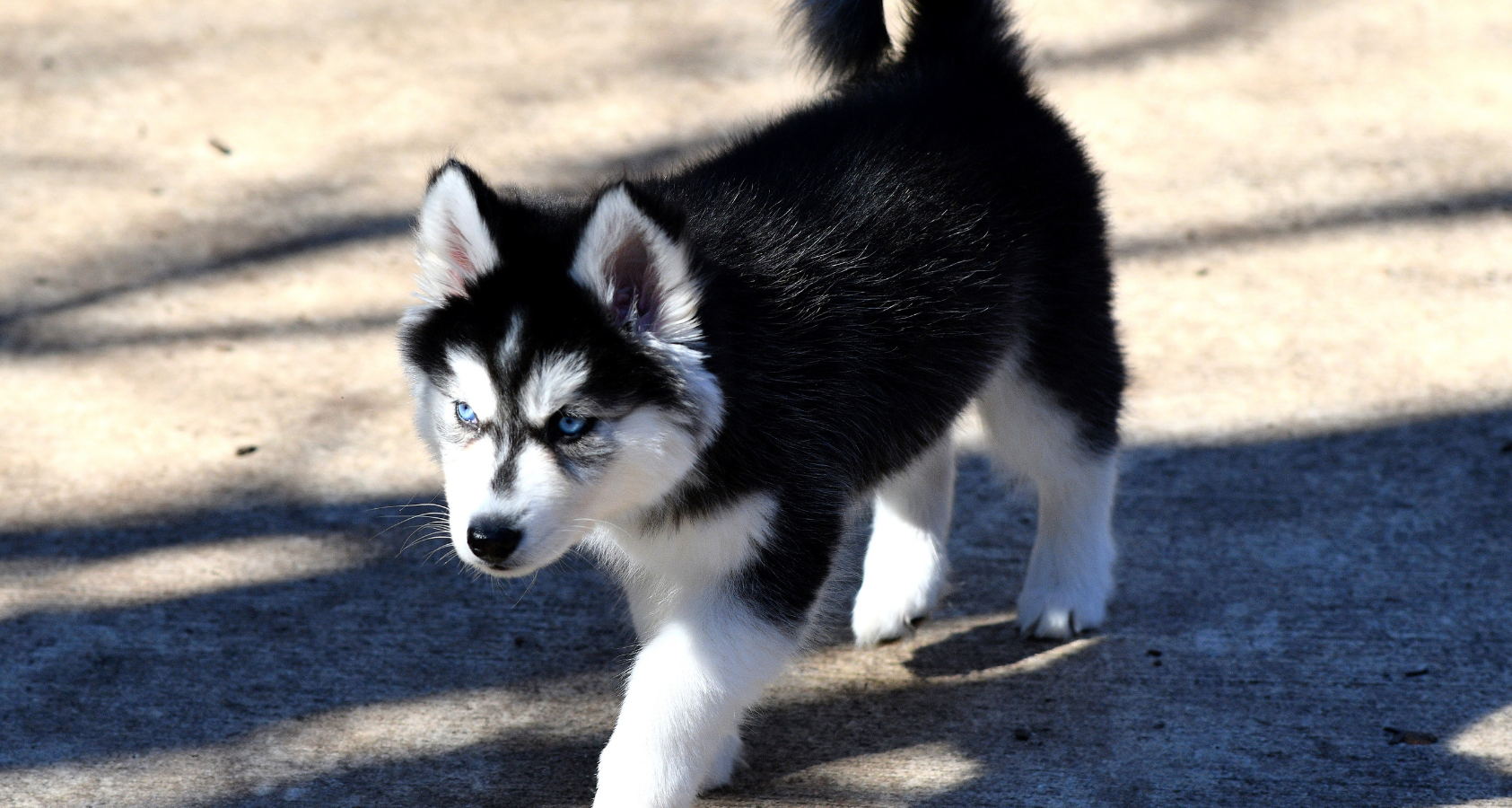
Nail Trimming
When grooming husky puppies, don’t forget to trim nails. Nail trimming should be done once or twice a month to prevent problems. Bear in mind that dogs toenails have blood vessels, and cutting deeply may cause bleeding. So you need to be extra careful when giving your pup a nail trimming around because he won’t agree to cut nails next time if he gets hurt once. If you are not experienced in cutting puppies’ nails, it is better to ask a vet or groomer to help you out.
Ears and Eyes Care
- Gently check ears weekly for redness, ear infection, swelling, or bad odor. Using dampened cotton balls with gentle ear cleaner is wise to prevent infection. Don’t insert any sharp or pointed object in your pups’ ear as it may hurt the ear canal. Just clean the outer ear.
- Lastly, thoroughly inspect for sores, rashes, redness, inflammation, or tenderness on skin, mouth, eyes, and feet. Also, clean eyes, and there should be no discharge or redness.
Husky’s Health Status
Huskies are a pretty strong dog breed and are healthy with routine care, but you need to check their health off and on to ensure they don’t need medical assistance. Typically, this part will also need your visits to the vet, but your knowledge about possible health complications is necessary.
Here are some common diseases found in huskies:
- Hip dysplasia is a condition in which both hips are impaired by dysplasia and is quite painful for dogs. There is no specific age for huskies to have this issue, but mostly hip dysplasia is common in dogs during middle age or later in life. Being a parent of a husky puppy, you must be aware of the diseases that can put your pup in trouble in the growing phase.
- Hypothyroidism is another problem Siberian puppies are at risk of. Basically, it is a hormonal problem, and dogs suffering from this disease gain weight despite eating less. You may also see fur loss or bald spots on the coat.
- Cataracts are one the most common and dangerous problems in huskies affecting about 10% of the breed that can develop within 6 to 12 months of a husky puppy. The disease causes opacity on eh lens of the eye, causing difficulty in seeing, and the dog eye will have a cloudy appearance. Unfortunately, if this condition gets severe, your dog affected with cataracts may get blind.
Thus, if you plan to buy a husky puppy, make sure to get health clearance from the breeder. These health clearances show that the pup has been tested for different health conditions and is perfectly fit. Secondly, keep visiting the vet for your pups’ routine check-ups.
Husky Puppy Training
Training pups is an art, and you can play a great artist to train your furry baby. Before doing this, make sure to convert your home or backyard into a pet-friendly space to help your pup. The best way is to secure the site with fencing, so your pup remains under observation. You can use a fence at least 6 feet high and difficult to dig. Using a concrete or strong mesh at the base of the fence also works well.
- Socialize Husky Puppy
Husky pups are naturally friendly and ready to socialize, so they benefit from their trait and introduce them to people and other fellow pets. Socializing at an early age will help pups behave nicely and not panic in the gatherings. If he seems to be nervous at the start, don’t force him to meet people. Take him time and respect his comfort level. You will not be disappointed because he will be used to this habit.
- Lead Your Husky Puppy
Huskies are a little stubborn, and you need to be smart enough to lead from the front. Don’t get obstinate with your pup, and get about his temperament first. Observe the body patterns of your pup and train accordingly. You must be capable enough to guide what is good or bad for him. If he does not follow your command, don’t try too hard and give him time to get your instructions. You may find it challenging initially but will be surprised by the results.
- Give Appreciation/ Rewards
Like any human being, dogs need appreciation. It is one of the pivotal parts of dog training, and you cannot get successful without encouraging your pet. Whether your Husky behaves nicely, participate in activities, or follows your guidelines, always appreciate him with your expressions and give him a treat. It will help him get clarity of things to do and to avoid. Conversely, if your pup fails to follow your voice, don’t be aggressive or give punishment. There is nothing worst in dogs; training than giving punishments. This not only ruins your relationship but also makes them aggressive.
- Potty Training
Having pets in the house is overwhelming, but sometimes their habit of not using the bathroom makes you sick. However, it is not necessary for all pets to behave like this and can be improved with proper training.
Training from puppyhood helps their learning, and they get about using the bathroom. One of the easiest ways is to give your husky potty training. Take your dog outdoors more often, so he does not mess up inside. If you find them doing anything wrong in an indoor area, give a ‘NO’ signal and take him outside to let him know it is the best way to do this job. When your pup starts doing in the bathroom, acknowledge his actions and offer a reward.
- Leash Training
Huskies love running, and you can expect anything from them to get free. Husky parents often claim to have off-leash experience, and you need to be vigilant about their off-leashing habit. Use a dog collar and walk with him in the house. The dog will be comfortable soon and give a positive response outdoors.
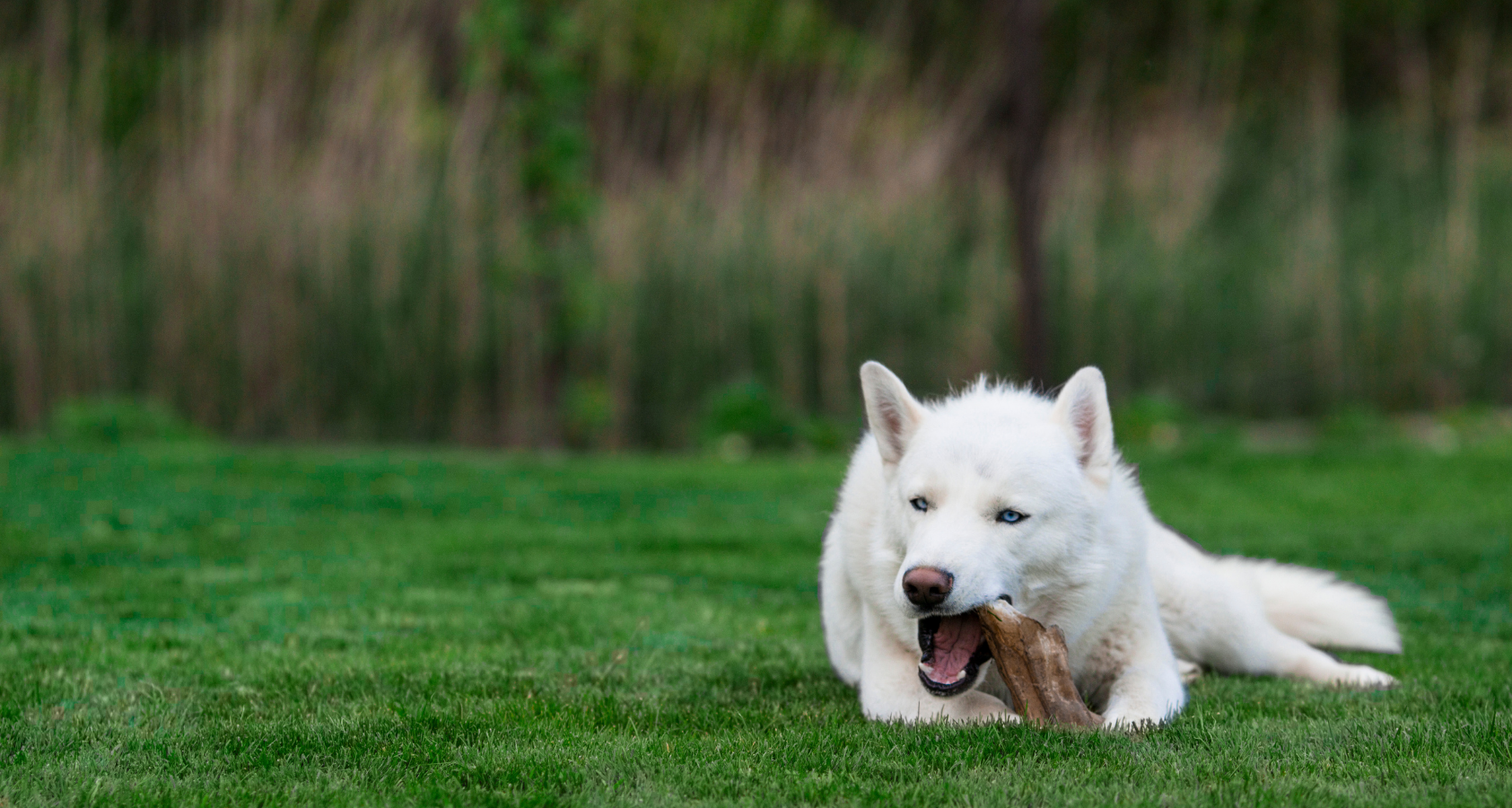
Feeding Requirements
There are no particular nutritional requirements of husky puppies, and they do well with dog food. The amount of food also varies depending on pups’ activity and size. Generally, 1 to 2 cups of high-quality dry food a day is recommended, and it should be divided into two meals.
You can increase the mealtime for pups, and it would be alight to feed three times a day during early age. Feeding husky pup three meals a day until three months of age would be fine. After this period, go for two meals a day.
If your puppy cannot finish three meals before this time, make a plan for four meals. After one year, you will notice your dog is less interested in afternoon meals, and it is when you can skip the third meal and stick to feeding him twice a day.
Life Span
No one wants to lose his pup, but every dog has a certain life span. The average life of different dog breeds helps pet parents to get a dog with a good life span. Fortunately, husky puppies have a considerable life span of 12 to 15 years.
On the contrary, many medium-sized dog breeds have less age and live between 10 and 13 years. This is quite happy news for all husky puppy lovers as they can expect a long companionship.
How Much Does a Husky Puppy Costs?
The overall cost of a husky puppy varies and depends on many factors like the breeder’s reputation or the quality of his bred pups. Similarly, pup size, age, fluffiness, color, and other unique traits make these pups sold at different prices. The region of interest of people towards huskies may also increase the price. As mentioned earlier, there are different types of huskies, and there could be different price tags for a different variety.
Similarly, Miniature size husky pups cost lesser than large ones. The same is the case with its fitness or physical state. For instance, pups with complete vaccination certificates, medically sound reports, and travel documents cost high compared to dogs without all these qualities.
So on average, you can own a husky pup anywhere between 500$ to 1500$.
Conclusion – Baby Husky Puppy
Baby huskies are a great addition to the family, and their traits are most desirable in pet parents. Their friendliness, gentle behavior, intelligence, and above all, their smiley features have the heart of husky fans.
The husky puppies are also convenient for dog owners because of their easy grooming and no so hectic care routine. All you need is to keep an eye on your pup’s health, brush nicely, bathe him, and do other necessary things. Similarly, train your husky puppy to make him well-groomed and obedient for the rest of his life.
About The Author
I'm a content writer and researcher. But bottom line, I loveee animals. I had my first animal which was a guinea pig at age 8. Later had a bunny, dog and a lot, a lot of fish. Writing about what I know about pets will allow me to share my knowledge and love for them with everyone else. Dealing with dogs my entire life, I know a lot.

